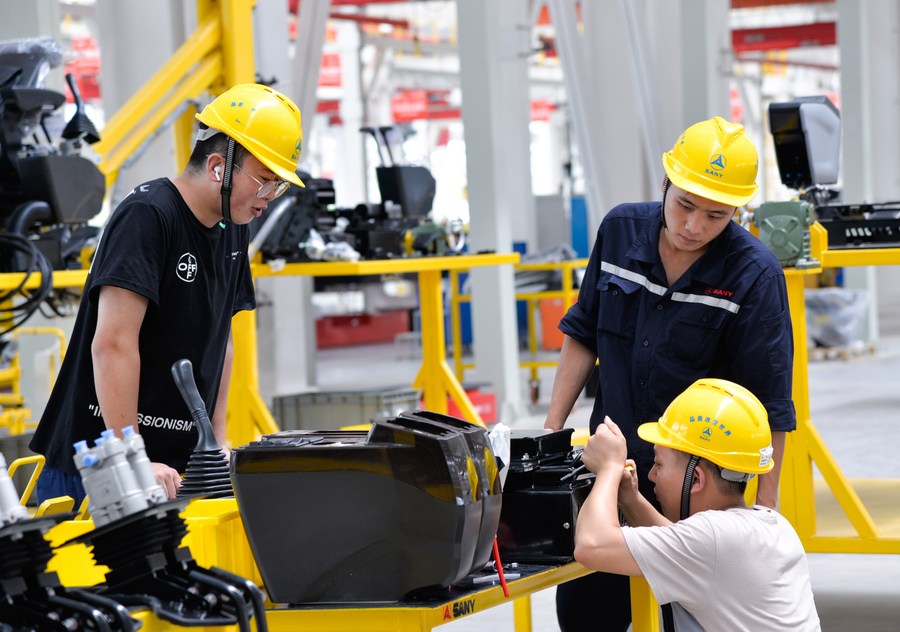China's edge on skills offers insights for US, experts say


China's success in nurturing talent offers some insights for those wanting to see improvements in the United States' economic competitiveness.
"It's clear that China has a long-term plan and it is prioritizing national resources toward that plan for elevating the potential of their people," Ryan Hass, a senior fellow at the Brookings Institution, said at a webinar themed "China's Human Capital Landscape".
China is dedicating plenty of resources toward the fields of science, technology, engineering and mathematics-collectively known as STEM-and higher education more broadly, Hass said at the event, which was hosted by the Center for Strategic& International Studies, or CSIS. He said the nation also is channeling talent into those pipelines dedicated to advancing national objectives.
Hass is one of the authors of the report "How China's Human Capital Impacts Its National Competitiveness", released this month by Brookings and the CSIS. According to the report, through the statements of senior leaders and the policies that accompany them, the Chinese government recognizes that the advancement of the country's human capital will be pivotal to securing China's future economic and geopolitical potential.
Emily Weinstein, a research fellow at the Center for Security and Emerging Technology at Georgetown University, said that China has "big, lofty goals", and "big plans and the ability to think strategically".
Mutual learning
Weinstein stressed China's efforts in artificial intelligence not only at the higher education and PhD levels but also from prekindergarten through to the 12th grade, and the US could learn from China's approach, she said.
"There's a lot that can be done at the state level in the United States to look at improving tech literacy at the K through 12 educated levels," she said.
Weinstein said it was impressive "how Chinese universities have really moved over the past 15 years into the top world rankings". She noted that their advance had been a major part of the Chinese government's strategy to attract talent, including Chinese from overseas and foreigners.
"Unfortunately, I think a lot of the rhetoric that we've been seeing in the United States of the past four or five years is pushing talent away from the United States and back toward China," she said.
"The news about people going to Canada, people going to Australia, people going to the UK and elsewhere is sending the United States… a bit of a wake-up call."
Hass said: "I think that one of America's asymmetric advantages has been its ability to attract top talent around the world who want to come live and work here and contribute to American society," he said. The US is "underutilizing that asymmetric advantage right now", he said.
Weinstein said the US and China should not stop having conversations, at least at the research level, for academic collaboration.
"I would be scared if all medical, biomedical, biotechnology researchers between the US and China stopped talking. I do think in terms of advancing medicine globally, we need to keep paying attention to what the Chinese are doing and having those conversations with them," she said.

































